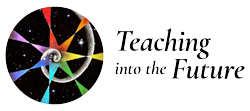In the field of education, one assumes that the delivery of knowledge is the highest endeavor for the teacher. Students are called learners, but we can also think of them as teachers as well. Learning is a cyclical relationship between students and teachers. According to John Dewey, good education should have both a societal purpose and purpose for the individual student. Dewey disapproved of traditional education for lacking in holistic understanding of students and crafting curricula overly focused on content rather than process, which is judged by its contribution to the well-being of individuals and society. “Then again progressive education”, he argues, “is too reactionary and takes a free approach without really knowing how or why freedom is useful in education. Freedom for the sake of freedom is a weak philosophy of education.” Dewey advocates a ‘theory of experience’. His premise that educators must first be aware of the nature of human experience is similar to Steiner’s philosophy of education which places human development at the core of the curriculum.
Dewey’s learning cycle–observe, discover, invent new actions and produce new content from those actions, in short, learning from past experience–is a contrast to Otto Scharmer’s U theory which suggests a learning experience where the future is ever present as we continually discover our part in “bringing that future to pass.” This theory has three stages: sensing, presencing, and realizing. Though they bear a similar stamp to Dewey’s learning cycle, they differ in the degree of perceptive awareness and sensory attentiveness when observing and reflecting on phenomena. Like Zanjonc’s ‘Contemplative Inquiry’, one allows for an ‘inner knowing to emerge.’ The principle of unknowing is at work, Steiner suggests, acting as a force, through ideas. Unknowing takes on the guise of a patient teacher actively listening to the “as yet unknown” teachable moment.

